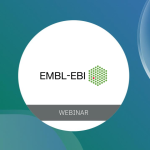How green is your computing?
Have you ever thought about the carbon footprint of your data analysis? As we take a closer look at the environmental impact of everything we do, a growing number of people are looking at the ways in which we use our computing resources and minimise effects.

The EMBL-EBI Training team has been taking a look into how we can inform and support researchers who are applying bioinformatics and data science in their work about these issues. Starting with a workshop focused on green bioinformatics training at the ISMB conference in July, and the more recent delivery of a webinar on the environmental impact of computational biology, we’ve been working with Loïc Lannelogue from the University of Cambridge to explore the issues in more detail.
The key message? It’s not just about how long you leave your PC and monitor on for whilst away from your desk.
How much power your compute resources use and where this power is coming from are major impacting factors, but if you are a researcher working within a system where you are not in control of these, what can you do?
Here are some key pointers to get you started!
- Storage of data can have quite an impact (think of the 1000’s of unread emails you may have stored in your Gmail accounts?). When you are generating data think about what elements need to be stored and for how long – also consider backups and where you are storing them. Why not submit your data to an openly available (and FAIR) public resource?
- When you run your analysis, are you running it in the most efficient way possible? Can you tweak the parameters or make your code more efficient? How many times is it necessary to repeat analyses?
- Do you need to generate all new data, or can you take data from an open-access public resource? Petabytes of data are stored at organisations such as EMBL-EBI which can be used by many groups of researchers to generate and build upon hypotheses and analyses in their own work.
- When it comes to renewing hardware do you need to purchase new equipment as frequently or can some machines be made to last a bit longer?
Finally, why not take a look at Loïc’s handy calculator and work out the carbon footprint of your work? There is also a 10 simple rules paper on the topic to give you more ideas.
Look out for more green compute discussions over the next year from EMBL-EBI Training, and let us know any tips you might have.
—
Written by Sarah Morgan, Scientific Training Co-ordinator, EMBL-EBI Training